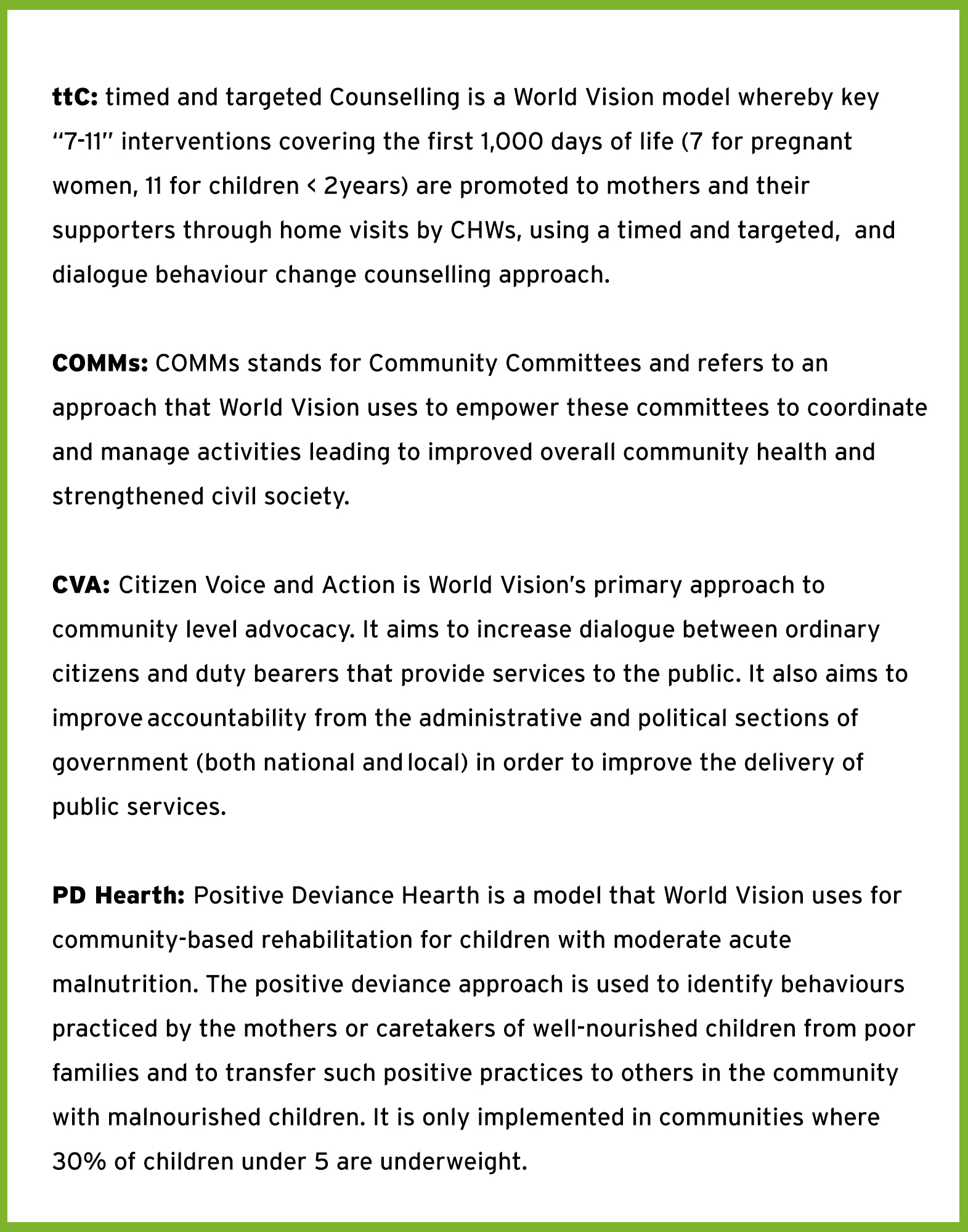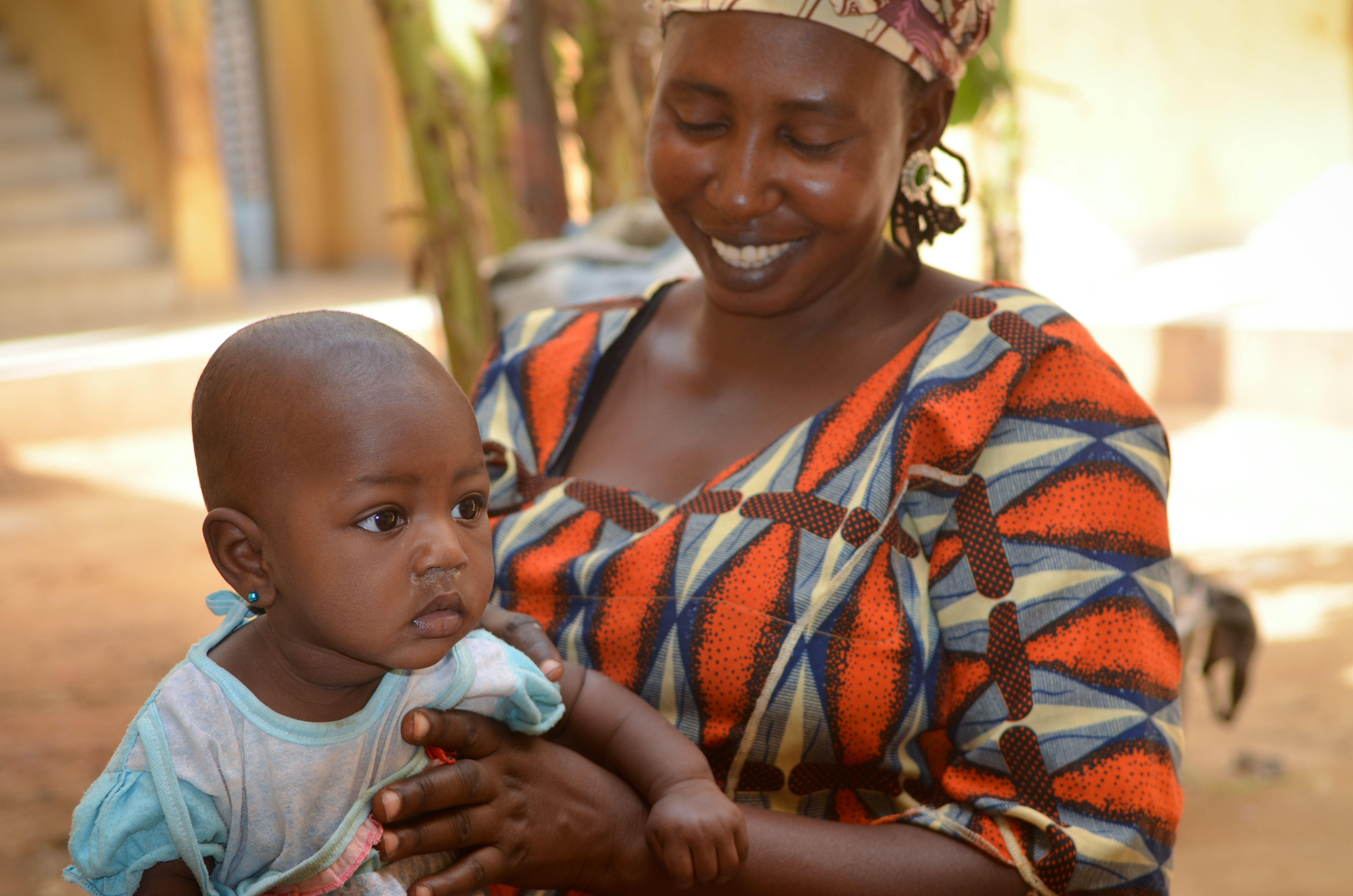 The Access - Infant and Maternal Health (AIM Health) programme was a five-year initiative of World Vision Ireland, with funding support from Irish Aid, implemented between January 2011 and December 2015 in ten Area Development Programmes (ADPs) of World Vision Ireland across Kenya, Tanzania, Uganda, Mauritania and Sierra Leone. The overall goal of AIM Health was to improve maternal, newborn and child health (MNCH) outcomes and reduce maternal and infant mortality, in line with Millennium Development Goals 4 and 5.
The Access - Infant and Maternal Health (AIM Health) programme was a five-year initiative of World Vision Ireland, with funding support from Irish Aid, implemented between January 2011 and December 2015 in ten Area Development Programmes (ADPs) of World Vision Ireland across Kenya, Tanzania, Uganda, Mauritania and Sierra Leone. The overall goal of AIM Health was to improve maternal, newborn and child health (MNCH) outcomes and reduce maternal and infant mortality, in line with Millennium Development Goals 4 and 5.
"We are Partners" is a core value of World Vision. We recognise that working effectively in collaboration with all sectors of society is indispensable for sustainable development and long-lasting change. AIM Health was founded on the concept that World Vision are not implementers; rather World Vision are facilitators who work in close partnership with the Ministry of Health and the community to bring about behaviour change in order to improve the health and wellbeing of mothers and their children in a sustainable manner. AIM Health was fully aligned with existing Ministry of Health policies in each country and programme interventions were integrated into the annual implementation plans of the Ministry of Health at county/regional and district levels, resulting in Ministry of Health ownership of these interventions each year.

Strong partnerships and the provision of regular capacity building to our partners, was the foundation of AIM Health since its inception. Key stakeholders, in particular our Ministry of Health partners and local communities, were fully engaged in the planning and implementation processes of AIM Health, which contributed towards the sustainable progress made over the five years of the programme. This incorporated a focus on the involvement of both men and women in MNCH issues within communities. Capacity building (including refresher training) was provided on the core models of AIM Health (ttC, COMM, CVA and PD Hearth) to targeted audiences including Community Health Workers (CHWs), community members, local CSOs, Ministry of Health partners and health facility staff. By the end of the programme a total of 1,887 CHWs (687 males, 1,200 females) were trained on ttC, with many of these CHWs receiving supplementary training, such as Infant Young Child Feeding (IYCF) and Community Led Total Sanitation (CLTS). Health Facility staff were oriented on ttC in order to support and supervise the CHWs’ work but additional training was also provided to the Health Facility staff to aid them in their work. 1,024 community members (544 males, 480 females) were trained on COMMs and 738 community members (451 males, 287 females) were trained on CVA. These community groups were also oriented on ttC and maternal and child health in order to understand and support the work of the CHWs. Other community groups established and supported through AIM Health include Mother Support Groups, Men’s Support Groups and Nutrition Counselling Groups. Linkages between all of these partners were strongly promoted by the programme.
It is the combination of all of these collaborative efforts that has enabled AIM Health to contribute to improved MNCH outcomes over the past five years. By strengthening capacity and promoting linkages across various stakeholders, community systems have been strengthened to identify and strategically respond to community health needs. Following an independent evaluation in October-December 2015, the outcome and impact results from the AIM Health Programme End Line Evaluation Report indicate that the programme goal of reducing infant and maternal mortality rates by 20% was achieved to the desired level in most programme sites. Importantly, according to this report, the sustainability of these MNCH outcomes was “in-built in the AIM Health programme design; as a capacity building partnership with government and communities.”
For more details on the AIM Health Programme please refer to: https://www.worldvision.ie/what-we-do/health
Photo: World Vision


